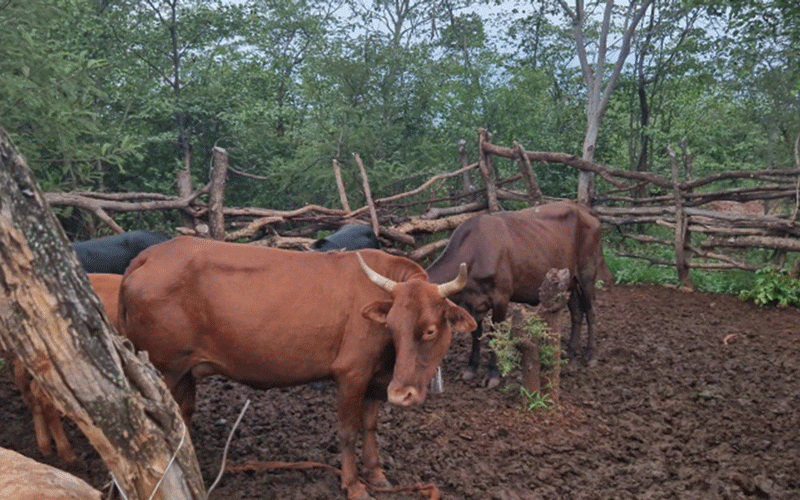Gwanda villagers are alarmed by opportunistic cattle buyers exploiting the drought, driving livestock prices down to alarming levels. According to Ward 1 councillor Stanford Nkala, these buyers are capitalizing on villagers’ desperation amid the widespread hunger in the area and are using cattle tax as an excuse to exploit drough stricken communities.
Nkala vividly illustrates the severity of the situation, citing an example where a beast, previously valued at US$700, is now being sold for a mere US$80. He expresses villagers’ fears that if this trend continues, prices may plummet even further.
Contrary to allegations of unscrupulous conduct, cattle auctioneer Andrea Lawrence attributes the low prices to reduced business activity, exacerbated by the drought and the recently imposed cattle tax by the government. This tax mandates buyers to pay 11.62% of the purchase price to the council, a levy deemed excessive by farmers, risking the proliferation of illegal livestock trading.

The introduction of the new cattle tax by the government has significantly contributed to the prevailing low prices more than the drought itself. This tax imposition, requiring buyers to allocate a substantial portion of the purchase price to council fees, adds a considerable financial burden to the already struggling farmers. With such a hefty levy in place, buyers are compelled to offer lower prices to compensate for the increased financial outlay, further depressing the market value of livestock.
Farmers, already grappling with the economic strain brought by the drought, find themselves doubly burdened by the imposition of the cattle tax. The additional financial strain imposed by the tax not only reduces their returns from livestock sales but also exacerbates the challenges they face in sustaining their livelihoods. Consequently, the combination of the drought and the burdensome tax policy creates a dire situation where farmers are forced to sell their livestock at significantly reduced prices, threatening their economic viability and exacerbating the already precarious food insecurity in the region.
The exorbitant prices of stock feed have left many farmers struggling, compelling them to sell their livestock. With only a handful of buyers from Gwanda and Bulawayo, villagers find themselves in fierce competition to offload their animals, anticipating even bleaker circumstances ahead as they too need funds for food.
